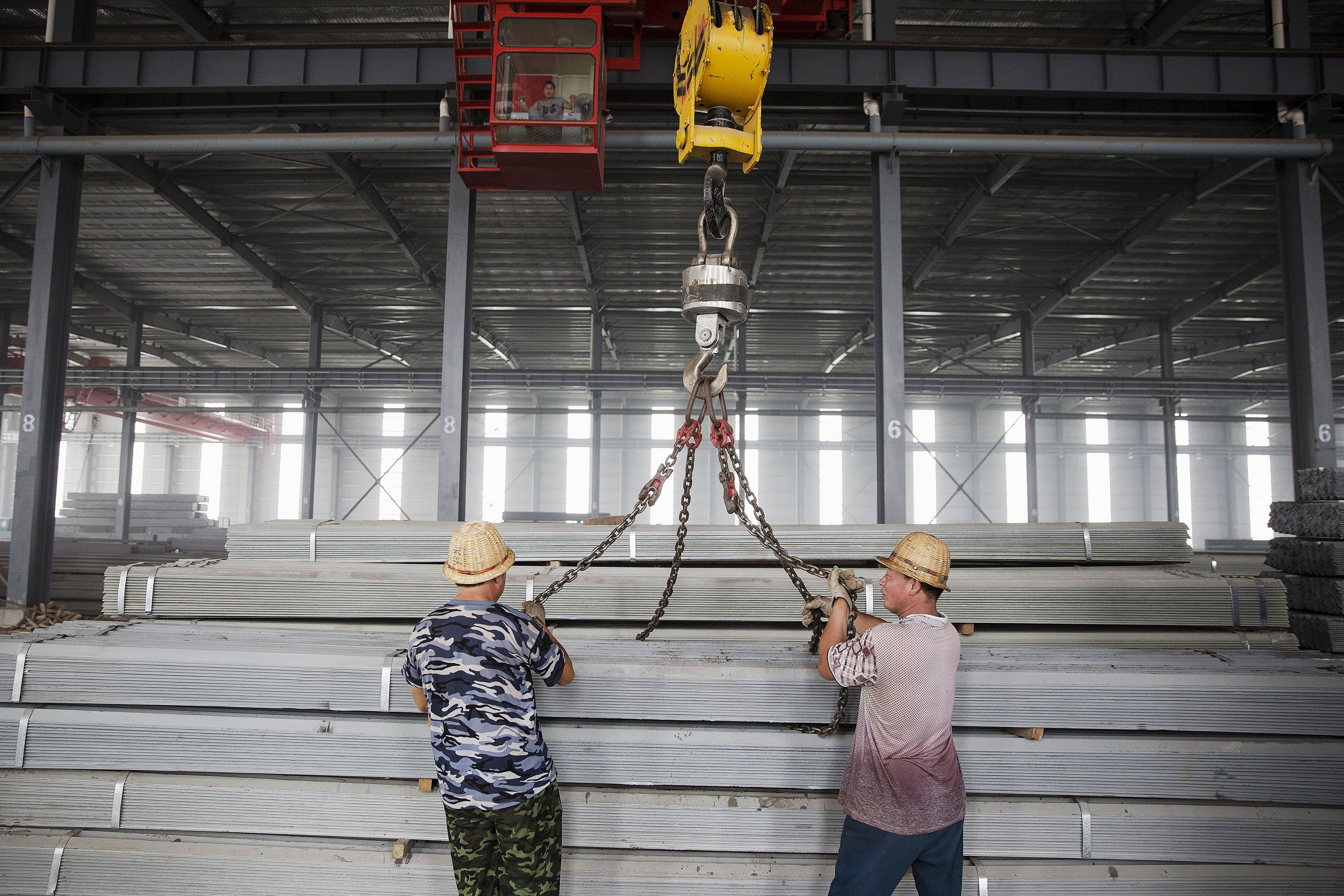It might seem like a tedious technicality to most, but China's quest to gain market economy status (MES) from the European Union (EU) is quickly escalating into a potentially angry trade dispute that could have far wider political repercussions.
The status, if conferred, would make it more difficult under World Trade Organisation (WTO) rules for the 28-member bloc to impose steep tariffs on Chinese firms that it alleges have unfairly dumped low-cost goods on EU markets.
While this would be welcomed by China, experts point out that with only about 1 per cent of Chinese exports to the EU affected by anti-dumping claims, MES is more than a question of economics; it's a political issue - and a highly symbolic one for Beijing.
"The non-market economy designation has become a symbol. It's hard to argue that you are a great power when you are one of a handful of countries that are non-market," Dr Deborah Elms of the Asian Trade Centre told The Straits Times.
As the world's largest trading nation, China would also regard opposition from the EU and the United States, which also has not accorded MES to China, as "unwarranted discrimination", said Mr Alan Oxley, who runs the Melbourne-based trade consultancy ITS Global.
The EU is expected to make a decision in the coming months, although Washington has reportedly lobbied Brussels against granting MES to China.

The contentious issue goes back to when China joined the WTO in 2001. It was seen then as a centrally planned economy, and the terms of its accession required the country to be treated as a "non-market economy" for 15 years.
This meant that its prices and costs were regarded as artificially low and unreflective of normal market forces due to state subsidies that its domestic industries enjoyed. As a result, it was easier for other countries to launch anti-dumping probes and impose high duties on Chinese exports.
Beijing has long interpreted the accord to mean that it would automatically be given MES at the end of 2016. Already, more than 90 countries, including the Asean states, recognise the MES of China, although the US, the EU and Japan have yet to do so.
But those opposed to conferring the status disagree with the reading of the rules, arguing that Beijing's continued heavy hand in the economy, such as through fixing prices and giving subsidies to a wide range of industries, disqualifies it from MES. They also cite Beijing's recent stock market intervention as a sign that it can reverse its market-based progress.
The dispute has been moved to the top of the EU agenda at a sensitive time for the region's languishing steel industry, which blames many of its troubles on unfairly cheap Chinese imports.
Concerns are growing that MES for China would lead to a greater dumping of Chinese goods, resulting in massive job losses in other vulnerable European sectors such as textiles and solar panels.
Already, dumping allegations have been a source of tension in Sino-EU ties. The European bloc launched 119 anti-dumping probes and imposed 85 anti-dumping measures against Chinese products between 1995 and 2014.
While the EU's ambassador to China, Mr Hans Dietmar Schweisgut, maintains that the bloc's anti-dumping measures are "strictly" under WTO rules, some experts say the EU's reluctance to grant China MES is due to protectionist reasons.
"The EU record on anti-dumping is not a good one. (Its challenge to the agreement) would be characteristic with its inclination to distort anti-dumping rules to protect EU producers from cheaper imports," Mr Oxley said.
Concerns that China might want to use the MES to challenge global trade rules are overblown, others note.
Dr Elms said Chinese officials might even be unsure as to how they want to change WTO rules. "I think they just want to be taken seriously as a major player with the ability to influence the agenda... released from the constraints of the accession protocol," she said.
The Global Times, a Chinese Communist Party paper, argued in an editorial last month that Russia, which joined the WTO in 2012 with a much less developed economy than China, was recognised by the EU as a market economy in 2002.
"Obviously China's MES is largely a political decision. No country has a market economy in a complete sense. The yuan's inclusion in the International Monetary Fund's Special Drawing Rights basket is a global recognition of China as a market economy," it said.
But larger goals could also be at stake, not least putting Sino-EU ties on a stronger strategic footing.
Dropping trade and investment barriers could benefit Europeans by providing less expensive goods and giving EU firms greater access to China's ever-growing markets, an editorial in Hong Kong's South China Morning Post pointed out.
